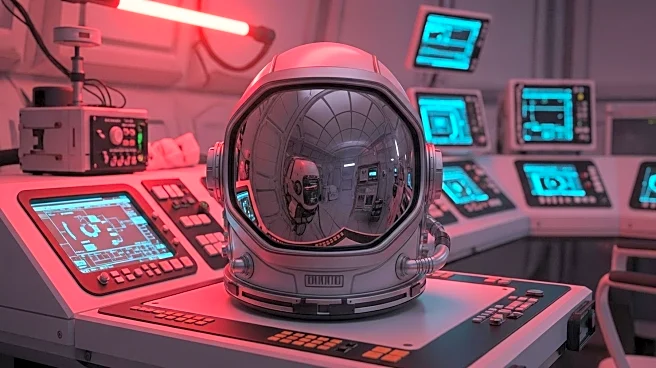What's Happening?
Laura Marie, a British pilot now residing in the U.S., is among six research volunteers selected for NASA's Mars Dune Alpha mission. This mission involves a 378-day simulation at the Johnson Space Center in Houston, designed to mimic conditions on Mars. The simulation aims to gather data on human health, psychology, and performance in preparation for future crewed missions to Mars. Marie, who has a background in philosophy and aeronautics, was chosen from approximately 8,000 applicants. The mission will involve activities such as growing crops, conducting simulated Mars walks, and testing technology intended for use on Mars. Marie is one of two alternate participants, ready to step in if needed.
Why It's Important?
This mission is crucial for advancing NASA's understanding of the challenges associated with long-duration space travel, particularly in preparation for potential human missions to Mars in the 2030s. The data collected will inform strategies to maintain crew health and performance in isolated and confined environments. The mission also tests the space food system and other technologies critical for sustaining life on Mars. Success in these simulations could accelerate the timeline for human exploration of Mars, marking a significant milestone in space exploration and potentially opening new opportunities for international collaboration.
What's Next?
The primary crew members are expected to enter the simulation on October 19. The mission will proceed with various scientific and operational tasks designed to simulate life on Mars. The outcomes of this mission will likely influence NASA's planning and technology development for future Mars missions. Additionally, the experience gained could inform other space agencies and private companies interested in Mars exploration. The mission's success could also inspire further public interest and investment in space exploration.
Beyond the Headlines
The mission highlights the growing role of international participants in NASA's projects, reflecting a broader trend towards global collaboration in space exploration. It also underscores the psychological and social challenges of long-term isolation, which are critical factors in planning for Mars missions. The mission's design, including communication delays, aims to replicate the real conditions astronauts will face, providing valuable insights into the human factors of space travel.










